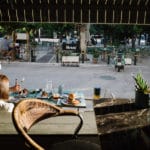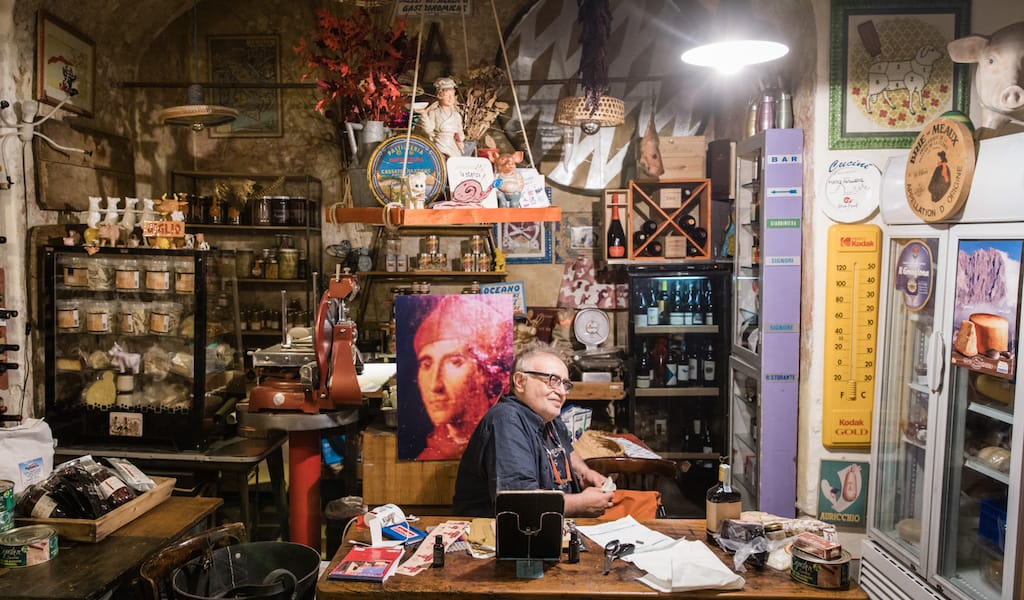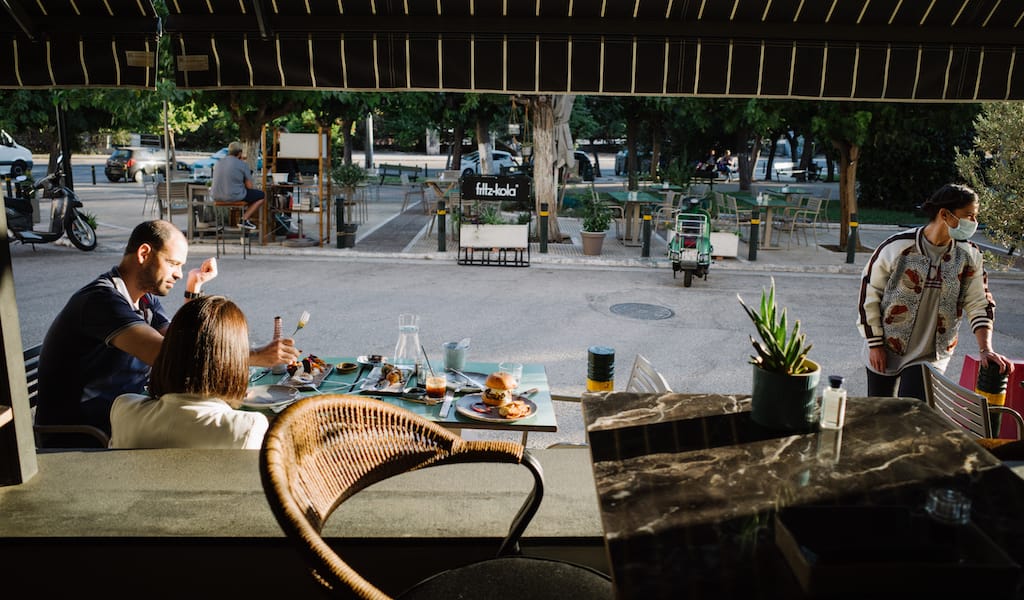The aggressive spring winds took a break, and I can finally hear the village: the nearby river rolling through the valley, roosters singing, chickens gossiping and our dog barking at who knows what. Garikula is our summer retreat, but thanks to Covid-19, we got here a season early.
The young cherry blossoms just popped this morning, and the tulips – gifts from our Dutch neighbors trapped in Rotterdam – opened wide yesterday while the plum, apple and pear trees are in full bloom. In ordinary times, our patio is full of boisterous friends as the delirious waft of mtsvadi roasting on oak coals fills the air. The only infections we are used to here are laughter and inebriation. But now, even our neighbor Zakhar stays away.

Georgia has so far been spared the brutality of Covid-19. The numbers aren’t lowering, but not exploding either, although that could soon change. We recently passed 300 infections, 100 of which were in the past week alone. The government has been doing a commendable job containing the spread of the virus. If only they had the guts to stand up to the Georgian Orthodox Church, which seems bent on getting us all sick by continuing to hold services, conduct communion with a shared spoon, and pass a cross around for everyone to kiss. (An alter boy who served mass two weeks ago was later diagnosed with Covid-19, along with his mother and grandfather, and Giorgi Papava, a local priest later found to have coronavirus, held mass on April 7 while he was ill.)
The village shelters us from the doomsday vibe of the city with its empty streets, shuttered “non-essential” shops and 9 p.m. curfew. Liquor stores are forbidden from accepting walk-ins and Tbilisi’s Deserter’s Bazaar and all its agrarian markets have recently been closed, compelling people to shop for produce indoors at supermarket prices. In Garikula, the regional government shut our beloved (and boisterous) Sunday bazaar two weeks ago, understanding that it functions as much as a social gathering spot as it does a market. In the meantime, there is springtime pruning, plowing and planting. Work isn’t just necessary – it gives us purpose. In the city we sit at home and wait for “corona” to pass. Staying pandemic-informed online wears you down, while binge-watching Netflix to forget what you read rots your soul.

Last week I drove to Kaspi, the district center. One of the oldest cities in Georgia, it could have been one of the most beautiful too, had the Soviets not decided to turn it into a huge cement factory that churned out toxic clouds of muck for decades. If there is a cafeteria or restaurant in this languid town, I haven’t found it. But there’s a proper pharmacy, a couple decently stocked grocers, and in non-pandemic times, a modest daily bazaar with hardware, clothes and local produce. It was an ordinary Kaspi weekday except for the short lines of masked people in front of grocery stores, some with masks under their chins as they puffed on cigs. The bank, in a remodeled storefront, had a lone teller and an attendant with a bottle of hand spray for our hands, door handles, and ATM buttons. I withdrew a few weeks’ worth of cash as our local butchers, bakers, shop owners and winemakers do not accept bank cards.
Our family hasn’t been to a restaurant in over a month and our cooking, as usual, is anything but Georgian, with few exceptions. We have no gas, and use our wood burner with an oven for one-pot wonders and casseroles. Georgian cuisine is something we have never really made because we have never had to – why go through the labor of making khinkali when you can go down the street and have a platter of them served to you? We have no shortage of excellent Georgian cookbooks, which we will likely start using – I reckon there is no time like the present.

School has resumed in virtual form, thank goodness, although three hours seems five hours too short. Our fourth grader shared a math problem: There are 120 liters of wine in a kvevri and 90 liters were taken out. What is the fraction of wine left in the kvevri?
My first outing once we swept the house up and stoked the wood burner was to forage for wine. Georgian villages are notorious for turning out grape plonk, but we aren’t planning on hosting a toast-draining supra anytime soon and would like something we can sip and enjoy. That meant Tariel, my usual source, would have to be skipped. A friend introduced me to Dato, a 52-year-old former physical therapist with a long braided pony tail and pharaoh-like goatee making the best wine I’ve had decanted into an old plastic Coke bottle in this village. I bought 12 liters. Only one-fourth is left. You do the math.
 September 5, 2017 Feasting in Garikula
September 5, 2017 Feasting in Garikula
The table was a motif of fresh delights we had never seen before, all the ingredients […] Posted in Tbilisi January 26, 2024 Drugstore Napoli
January 26, 2024 Drugstore Napoli
Dreamers make the world more beautiful. These extravagant eccentrics fascinate us with […] Posted in Naples September 12, 2023 ParkBench
September 12, 2023 ParkBench
Before we start this story, we must first explain the role of the platia in Greece. […] Posted in Athens
Published on April 15, 2020
Related stories
September 5, 2017
TbilisiThe table was a motif of fresh delights we had never seen before, all the ingredients from the family garden. In due time we would learn about pkhali, chicken tsatsivi and the intrepid Georgian ratatouille, ajapsandali; however, the only thing on our minds was surviving the barrage of toasts our host Aleko was pummeling us…
January 26, 2024
NaplesDreamers make the world more beautiful. These extravagant eccentrics fascinate us with their seemingly impossible, utopian ventures, while equally making us wonder how their projects endure. Mario Avallone, 62, is one of these people. Get to know him, and he’ll happily tell you his tale: his travels around the world, his years living in Sicily,…
September 12, 2023
AthensBefore we start this story, we must first explain the role of the platia in Greece. Platia (πλατεία, pronounced pla-tee-ah and sometimes spelled plateia) means “plaza” in Greek, and can refer to a central town square or a small neighborhood square. All ages meet at the platia: babies in strollers, loud children running and playing…



















































































